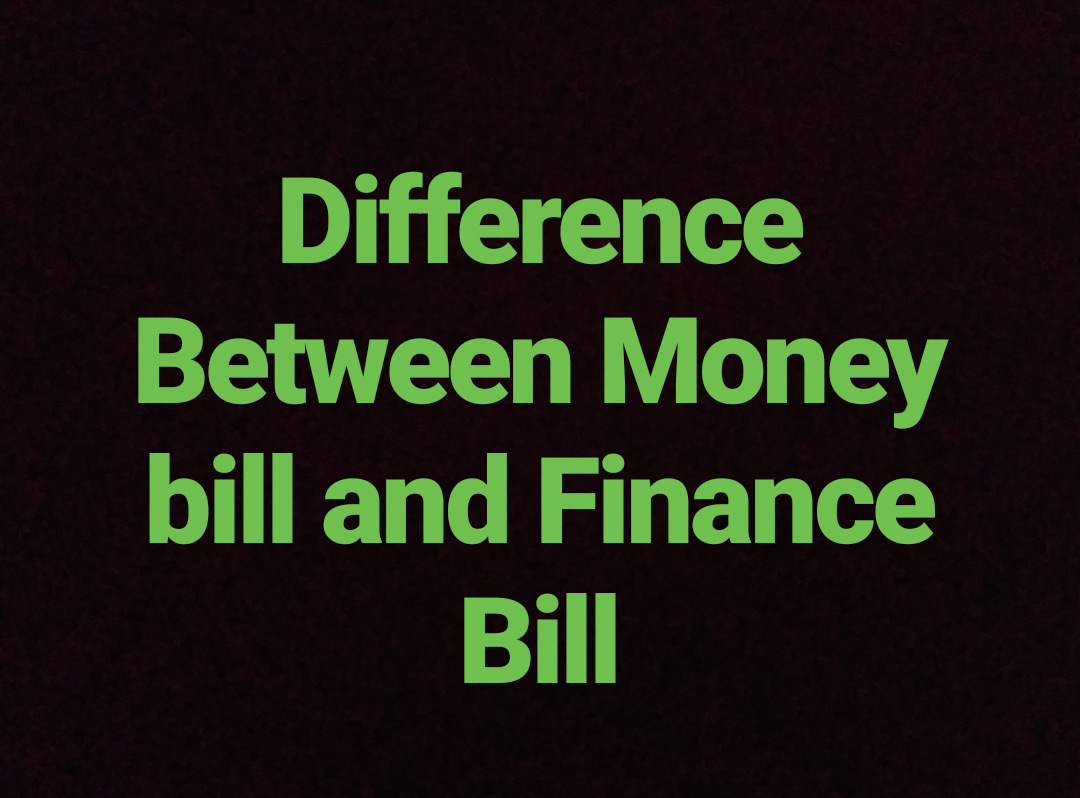Difference Between Money Bill and Finance Bill
Money Bill
- Only those financial bills which contain provisions exclusively on matters listed in article 110 of the constitution are called Money Bills. On this basis, a bill is money bill if:
- It results in imposition, abolition, remission, alteration or regulation of any tax at union or state level but NOT at local level. Thus, money bills exist in Parliament and State legislature only. If a financial bill results in imposition, abolition, remission, alteration or regulation at local level by a local body, it is not considered to be a money bill.
- It results in regulation of borrowing of money or results in any guarantee by Government of India.
- Results in withdrawal of money from Consolidated or Contingency fund
- Receipt of money in consolidated fund and public account.
Finance Bill
- Sometimes, a bill apart from being a money bill {i.e. having provisions of article 110}, may also have other provisions.
- A financial bill of category-I is considered same as Money Bill and introduced in the Lok Sabha on the recommendation of the President. However once it has been passed by the Lok Sabha, it is like an ordinary Bill and there is no restriction on the powers of the Rajya Sabha on such Bills. Rajya Sabha has powers to reject it and also there is a provision of joint sitting in this case.
- A financial bill of category-II is one which although has provisions involving expenditure from Consolidated Fund of India but does not have anything mentioned in article 110. We may take the example of “President’s (Emoluments and) Pension Act” to understand this kind of bill. This bill has provisions that money has to be taken out of the Consolidated Fund to pay salary to president but there is nothing in the bill as per provisions of article 110.
- Such a bill is ordinary in all respects and both Lok Sabha and Rajya Sabha enjoy equal powers in this bill. However, only special feature of this bill is that recommendation of the President is essential for consideration and passing of these Bills by either House.
Difference between Culpable homicide Section 299 and Murder 300
Money bill vs Finance bill
|
S.No
|
Money Bill
|
Finance Bill
|
|
1.
|
A bill is said to be money bill which exclusively deals with the matters prescribed in article 110 of the constitution.
|
All the bills, which deals with the provisions concerning revenue and expenditure.
|
|
2.
|
Government Bill
|
Ordinary Bill
|
|
3.
|
Introduction Lok Sabha only.
|
Category A bills are introduced in Lok Sabha while Category B bills can be introduced in any of the two houses.
|
|
4.
|
Prior approval of President or Government is required.
|
Prior approval of President is required.
|
|
5.
|
Certified by the Speaker of the Lok Sabha.
|
Not certified by the Speaker.
|
|
6.
|
The power of Rajya Sabha is restricted.
|
Both Lok Sabha and Rajya Sabha has equal powers.
|
|
7.
|
No provision of joint sitting.
|
Provisions are there regarding joint sitting of Lok Sabha and Rajya Sabha.
|








